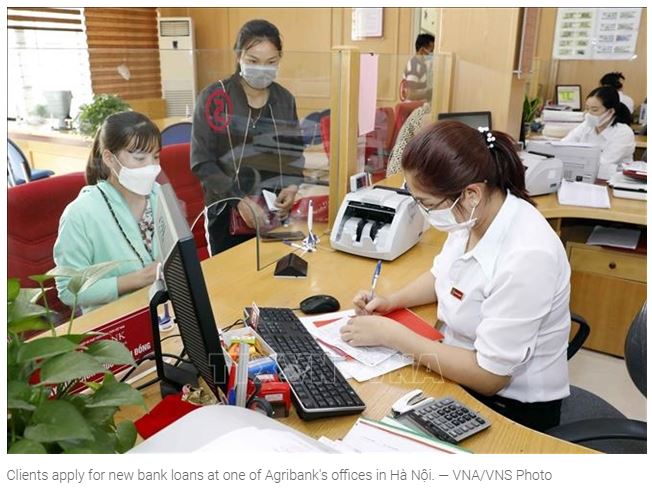Vietnam: Central bank to raise credit limit, banks slash interest rates
The central bank said local banks that meet liquidity requirements and offer low-interest rates for loans are qualified for the new policy, citing more favourable conditions and system-wide improved liquidity.
HANOI — The State Bank of Vietnam has raised the domestic banking system’s credit growth by 1.5-2.0 percentage points from the previous 14 per cent limit on December 5.
The central bank said local banks that meet liquidity requirements and offer low-interest rates for loans are qualified for the new policy, citing more favourable conditions and system-wide improved liquidity.
Commercial banks were slashing interest rates in an attempt to bolster economic recovery and ease up pressure on consumers and businesses, according to SBV.
Agribank, one of the largest banks in Vietnam, said it has slashed VND2 trillion in interest rates alone since the beginning of the year for 2.2 million clients across the country.
According to Agribank, businesses, cooperatives and household businesses will be entitled to a further 20 per cent interest rate cuts from now until the end of 2022.
Vietcombank, one of the country’s most profitable banks, led the movement by slashing 1 percentage point off yearly interest rates for Vietnam dong loans for both consumer and business clients until the end of the year.
Nguyen Viet Cuong, VCB’s deputy director-general, said the rates drop applies automatically, meaning no papers were required from clients, given they qualified for the package in the first place.
“The rates drop applied to around 175,000 of our clients, who accounted for half of VCB’s credit loans or VND500 trillion or US$20.8 billion,” he said.
HDBank slashed up to VND120 billion in interest rates (up to 3.5 per cent in some cases) for 43,000 clients.
Tran Hoai Phuong, director of HDBank’s business client services, said while the rates drop was not as significant as some may have hoped, it shows the bank is fully aware of the difficult situations their clients are in. He added the bank was willing to sit down with and listen to clients’ problems and hopefully, can find better solutions to support them.
This has been against a backdrop of rising deposit rates. In the second half of the year, deposit rates have climbed 3.5-4 percentage points higher compared to the same period last year, leaving little room left for commercial banks to reduce interest rates further.
Dr Dinh Trong Thinh, from the Vietnam Academy of Finance, said that prolonged high-interest rates will likely increase businesses’ borrowing costs, operational costs and inflation in the long run.
In an earlier development, the SBV demanded the country’s commercial banks tighten credit, while improve liquidity and prioritise key sectors of the economy.
SBV’s deputy governor Pham Thanh Ha said raising interest rates was part of an effort to bring down inflation and stabilise the exchange rate.
“As the economy started to bounce back, commercial banks have been pushing out large loans as there was significant demand in the market. Rising deposit interest rates was an important and necessary step to ensure the banks’ liquidity and ability to attract capital,” Ha said.
He added bringing deposit rates back to a pre-pandemic level has been a common strategy by central banks around the world.
“The SBV will continue to monitor developments in the domestic and international financial markets. We’ll take measures to balance monetary objectives and macro-economic elements,” he said. — VNS


 Thailand
Thailand




